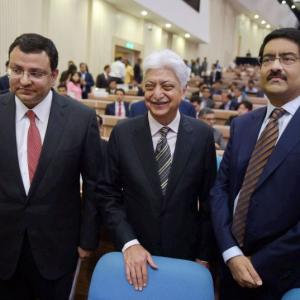While Make in India remains a big slogan with clear identification of industries and measurable in many of them, it is accompanied by bigger changes that should remove some fundamental issues on the ground.

India has not been able to achieve its potential as a manufacturing destination in the true sense, despite its huge domestic market and its strategic geographic position.
A major barrier has been the lack of ease of doing business on ground. Unlike services, manufacturing has many more touch points at all levels, and bottlenecks in each stage just add to the problem.
Though there have been a lot of noises around making India a manufacturing destination, lack of a concrete vision statement with measurable targets has meant that they have remained just that - noises.
To that end, the Make in India initiative announced by the new government has been a significant departure from the past approach.
The prime minister has reiterated time and again that the only way to make government policies successful is to treat them as missions and, thus, involve all the stakeholders.
While Make in India remains a big slogan with clear identification of industries and measurable in many of them, it is accompanied by bigger changes that should remove some fundamental issues on the ground.
First, the approach of bringing in systemic changes rather than giving incentives.
The single most important emphasis has been in bringing in overall efficiency in governance.
Specifically, emphasis on time-bound clearance of projects is a big efficiency booster.
That itself is a great change in policy outlook.
Many other environmental changes such as creating all round infrastructure, deciding to go ahead with GST and liberal FDI rules in many sectors would go a long way in helping the cause of manufacturing.
Another less discussed change in this context is the overall emphasis on bettering centre state relationships.
That will remove many artificial bottlenecks created because of issues in taxation that impact supply chain, delay in clearances and so on.
The best foot forward A lot of today's manufacturing is as much about knowledge as it is about efficiency.
That's where India scores.
It has the third largest pool of scientists and engineers in the world. One of the industries where this is more evident is electronic systems design and manufacturing.
Most of the major semiconductor companies have design presence in India - either through their captive centres or through outsourcing partners.
India is today one of the top locations for semiconductor design and embedded software, but it remains hidden under a generic and misleading name, IT/ITES services.
In the last few years, India has also become the preferred location for engineering products in various industries such as automotive, aerospace, medical electronics, oil & gas, and defence electronics. All of these have significant requirement of application specific chips, which are designed in India.
In fact, ESDM can be the bellwether of new generation manufacturing in India. While the government has been creating a conducive environment for manufacturing in India, a few initiatives specific to this sector can accelerate the trend.
A tried and tested way is an integrated sector specific promotion body.
It should not just look at policy and incentives but should actively facilitate single window clearance, clear anomalies that may exist in taxation, and take proactive steps such as skill development and capacity building. Certain proactive policies in areas that could be potential bottlenecks can only better the investment climate.
Environmental issues and handling of e-waste should be tacked head on with effective policy making. Similarly, labour reforms will go a long way in creating a better environment.
Finally, this revolution cannot just be incentive driven.
It has to be deep rooted so as to make it irreversible. One of the great ways to do that is to ensure that the growth happens in a little more secular way.
While big FDI flow and anchor investments do help, to make it sustainable and inclusive, the MSME sector should be encouraged to take part in this change.
Special schemes to attract MSMEs to this area can make it a success in the long run.
Local demand will always be a key driver and hence while we drive local manufacturing, a more vibrant demand base will accelerate IT penetration.
Amar Babu is president, MAIT










